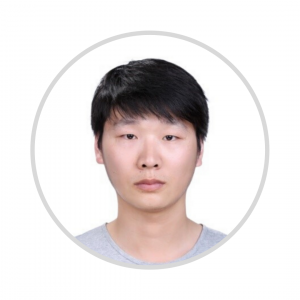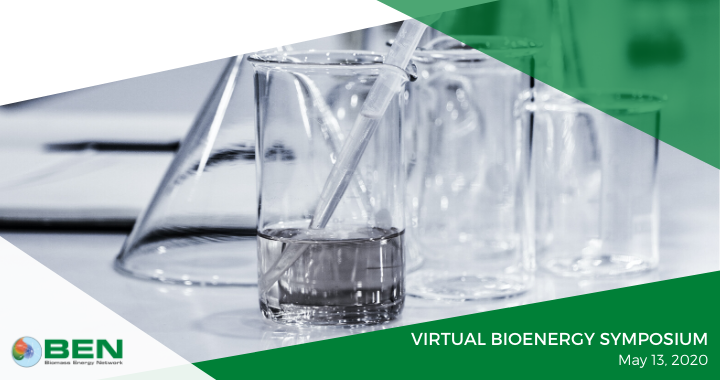The COVID crisis has certainly changed the world and driven people into isolation. However, the Biomass Energy Network believes that it is very important to keep the established momentum going despite these challenging times, and will continue to promote networking among stakeholders in the biomass-to-bioenergy space.
As such, we are pleased to announce our Virtual Bioenergy Symposium, occurring every 2 weeks starting on May 13 from 12:00-1:00pm MDT. The purpose of these sessions is to:
- Facilitate the transfer of research knowledge in the bioindustrial space
- Create networking and collaboration opportunities
- Keep graduate students and postdocs engaged during times of isolation
Sessions will be hosted on Zoom. We hope you will join us to continue these important conversations in this new virtual age!
Register here.
MAY 13 SPEAKERS:

Dr. Jie Wang
Department of Agricultural, Food and Nutritional Science
University of Alberta
“Improving bioethanol productivities through the development of a self-cycling fermentation approach”
The development and use of biofuels can help secure energy supplies and reduce greenhouse gas emissions. Ethanol is currently the most common commodity in biofuels. Cellulosic ethanol is the ethanol produced from lignocellulosic materials, the most abundant feedstock on the planet. Despite technological breakthroughs, worldwide, the cellulosic ethanol industry is faced with economic challenges. One of the bottlenecks we identified is the low ethanol productivity resulting from the current fermentation process that is operated in a batch mode.
To reduce production costs, a self-cycling fermentation (SCF) strategy was developed for ethanol production. SCF is a semi-continuous fermentation technique, where a real-time parameter is used to monitor the fermentation process; when stationary phase arrives, the system automatically harvests half of the culture volume for downstream processing, and refills the bioreactor with fresh medium to start the next fermentation cycle. In this work, an SCF system was successfully set up for ethanol production in a 5-L bioreactor. Under the automatic control of a gas flow meter, the fermentation process was operated for over 20 cycles. This results in a stable and robust ethanol production pattern, and more importantly, an improvement in ethanol volumetric productivity (the amount of ethanol produced by a cycle per working volume per cycle time) by over 35%, compared to batch fermentation performed under similar conditions. The increased productivity implies reduced operational and capital costs, which will help the cellulosic ethanol industry reduce production costs.
Dr. Jie Wang is a postdoc fellow in the Bressler lab. She is working closely with Cvictus Inc. to produce high-value animal feed through fermentation. This project integrates a coal gasification technology with industrial fermentation to produce single-cell protein. In the meantime, she has been actively training and mentoring students in the Bressler lab.
Dr. Wang received her PhD in 2020 January from Bressler lab. During the PhD study, she collaborated with experts from various fields, including microbiology, engineering, bioprocessing, electrical engineering, analytical chemistry, etc. This multi-disciplinary training enabled her to successfully build up an advanced fermentation strategy (self-cycling fermentation) using a 5-L bioreactor. As a result, a remarkable improvement in ethanol productivities was achieved, which has great potential to help reduce the capital and operational cost for ethanol production. In addition, her communication skills were recognized by several awards at local and International conferences.
Link to presentation (via YouTube)

Dr. Heng Zhao
Department of Chemical and Petroleum Engineering
University of Calgary
“Solar-driven Coproduction of Hydrogen and Value-added Chemicals from Biomass Photoreforming”
Concerns about increasing levels of carbon emissions, global warming and energy security have encouraged governments around the world to pursue alternative, clean energy strategies. Photocatalysis is a promising approach due to its renewable and sustainable energy input and mild reaction condition, and it has already demonstrated great potential for hydrogen production, carbon dioxide reduction, nitrogen fixation and biomass utilization. Direct photoreforming of biomass could enable valorization of various locally biomass wastes into high-value fuels including H2 and sustainable chemical feedstock, however, it has been challenged by the recalcitrant nature of biomass structure and the less-orientated photo-conversion pathways. Herein, simultaneously unveil biomass photoreforming mechanism and fine designing photocatalyst via rational design of light harvesting, charge separation and surface redox reaction all play crucial roles. In this talk, we will discuss our recent progress of band-gap engineering and p-n heterojunction photocatalysts design for biomass photoreforming.
Heng Zhao received his Ph.D. degree from Wuhan University of Technology majored in Material Science and Engineering in 2019. He is currently a GRI CFREF funded post-doctoral researcher in the department of Chemical and Petroleum Engineering at University of Calgary under the guidance of Dr. Jinguang Hu, Dr. Md Kibria and Dr. Stephen Larter. His research mainly focuses on the design and synthesis of functional catalysts for sustainable hydrogen and value-added bio-products co-production from biomass photoreforming.
Link to presentation (PDF format)

